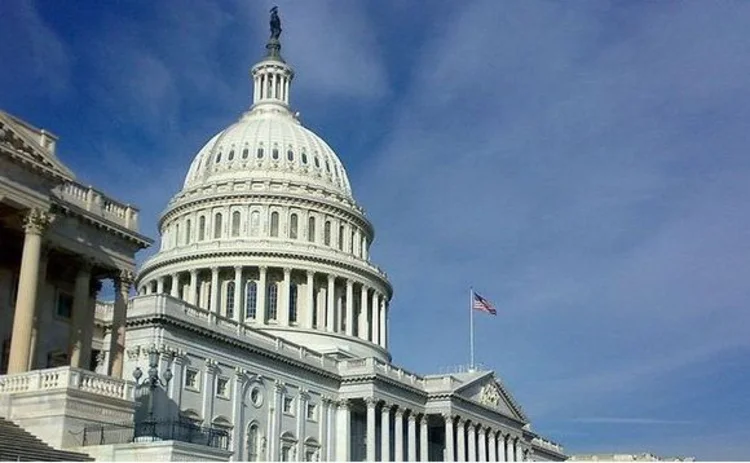
House Financial Services Committee passes rating agency bill

Controversial measures to hold rating agencies jointly liable in any securities fraud action have been dropped from a bill designed to curb the "inappropriate and irresponsible actions" of rating firms, which passed the US House Committee on Financial Services last month.
In a 49-14 vote on October 28, the committee passed the Accountability and Transparency in Rating Agencies Act, which will compel the Securities and Exchange Commission to review the methodologies and procedures of nationally recognised statistical rating agencies (NRSROs), mandate that at least one third of a rating agency's board of directors are independent, and require NRSROs to designate a compliance officer to address potential conflicts of interest.
The bill was based on a discussion draft introduced on October 16 by Paul Kanjorski, chairman of the House Financial Services Subcommittee on Capital Markets, Insurance, and Government Sponsored Enterprises. However, this draft contained few of the controversial proposals included in an earlier version, published by Kanjorski on September 25.
The September draft included a requirement for rating agencies to share information with each other, and conduct due diligence on ratings assigned or revised by rival firms. This obligation would have formed the basis of an even more contentious clause, which would have made NRSROs jointly liable in securities fraud actions against one agency, if that firm was unable to meet the full cost of any damages itself.
This version of the bill sparked strong protest from senior rating agency officials, who claimed the information-sharing and collective liability clauses were unjust and would damage their business. Meanwhile, some lawyers speculated the more controversial elements were part of a political ploy to force concessions from rating agencies. "This is obviously a case of a shot across the bow, but what is different on this case is that a shot across the bow is not normally done with a nuclear missile," says Dan Crowley, a partner at law firm K&L Gates in Washington, DC, speaking before the passing of the final draft on October 28.
While many of the most controversial elements were removed in the October 16 version, there remain some clauses aimed at increasing accountability of rating agencies. Specifically, the final draft clarifies the ability of individuals to sue rating agencies and lowers the pleading standard for legal actions. Under the new rules, it will be sufficient for a complaint to state facts that give rise to a "strong inference that the nationally recognised statistical rating organisation knowingly or recklessly violated the securities laws".
"This legislation builds on the administration's proposal and takes strong steps to reduce conflicts of interest, stem market reliance on credit rating agencies, and impose a liability standard on the agencies. As gatekeepers to our markets, credit rating agencies must be held to higher standards. We need to incentivise them to do their jobs correctly and effectively, and there must be repercussions if they fall short. This bill will take such steps," said Kanjorski.
Only users who have a paid subscription or are part of a corporate subscription are able to print or copy content.
To access these options, along with all other subscription benefits, please contact info@risk.net or view our subscription options here: http://subscriptions.risk.net/subscribe
You are currently unable to print this content. Please contact info@risk.net to find out more.
You are currently unable to copy this content. Please contact info@risk.net to find out more.
Copyright Infopro Digital Limited. All rights reserved.
You may share this content using our article tools. Printing this content is for the sole use of the Authorised User (named subscriber), as outlined in our terms and conditions - https://www.infopro-insight.com/terms-conditions/insight-subscriptions/
If you would like to purchase additional rights please email info@risk.net
Copyright Infopro Digital Limited. All rights reserved.
You may share this content using our article tools. Copying this content is for the sole use of the Authorised User (named subscriber), as outlined in our terms and conditions - https://www.infopro-insight.com/terms-conditions/insight-subscriptions/
If you would like to purchase additional rights please email info@risk.net
More on Credit risk
Finding the investment management ‘one analytics view’
This paper outlines the benefits accruing to buy-side practitioners on the back of generating a single analytics view of their risk and performance metrics across funds, regions and asset classes
Revolutionising liquidity management: harnessing operational intelligence for real‑time insights and risk mitigation
Pierre Gaudin, head of business development at ActiveViam, explains the importance of fast, in-memory data analysis functions in allowing firms to consistently provide senior decision-makers with actionable insights
Sec-lending haircuts and indemnification pricing
A pricing method for borrowed securities that includes haircut and indemnification is introduced
XVAs and counterparty credit risk for energy markets: addressing the challenges and unravelling complexity
In this webinar, a panel of quantitative researchers and risk practitioners from banks, energy firms and a software vendor discuss practical challenges in the modelling and risk management of XVAs and CCR in the energy markets, and how to overcome them.
Credit risk & modelling – Special report 2021
This Risk special report provides an insight on the challenges facing banks in measuring and mitigating credit risk in the current environment, and the strategies they are deploying to adapt to a more stringent regulatory approach.
The wild world of credit models
The Covid-19 pandemic has induced a kind of schizophrenia in loan-loss models. When the pandemic hit, banks overprovisioned for credit losses on the assumption that the economy would head south. But when government stimulus packages put wads of cash in…
Driving greater value in credit risk and modelling
A forum of industry leaders discusses the challenges facing banks in measuring and mitigating credit risk in the current environment, and strategies to adapt to a more stringent regulatory framework in the future
Accelerating the evolution of credit decisioning and modelling
Anthony Mancuso, director, global head of risk modelling and decisioning at SAS, explains the importance of developing a fully capable credit modelling lifecycle to empower non-specialist personnel, and offers insight into its own solutions to this end,…
Most read
- Breaking out of the cells: banks’ long goodbye to spreadsheets
- Too soon to say good riddance to banks’ public enemy number one
- Industry calls for major rethink of Basel III rules







